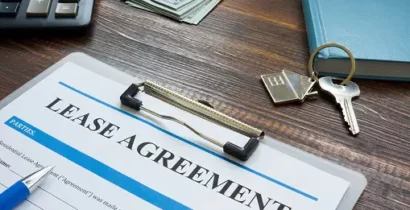Renting vs. Buying: Making an Informed Housing Decision
The age-old question of whether to rent or buy a home is one that many individuals grapple with as they consider their housing options. Both renting and buying have their merits and drawbacks, and the decision ultimately hinges on a range of factors – from financial considerations to lifestyle preferences. In this guide, we’ll explore the key aspects of renting and buying to help you make an informed housing decision that aligns with your goals and circumstances.
Renting: Flexibility and Convenience
1. Financial Flexibility: Renting typically requires a lower upfront cost, as you don’t need to make a down payment or pay for property taxes and maintenance. This can free up your finances for other investments or expenses.
2. Maintenance Relief: One of the perks of renting is that landlords are responsible for property maintenance and repairs. You won’t need to worry about unexpected repair costs or upkeep.
3. Flexibility to Move: Renting provides more flexibility if you anticipate relocating in the near future. You can easily move when your lease ends without the hassle of selling a property.
4. Access to Amenities: Many rental communities offer amenities like swimming pools, fitness centers, and common areas that you can enjoy without the responsibility of maintenance.
Buying: Building Equity and Long-Term Investment
1. Building Equity: When you buy a home, you’re building equity – a form of forced savings. Over time, your property can appreciate in value, giving you a valuable asset.
2. Freedom to Customize: As a homeowner, you have the freedom to personalize your living space. You can paint, remodel, and make changes according to your preferences.
3. Stable Payments: Fixed-rate mortgages offer stability in monthly payments, providing a sense of financial predictability over the long term.
4. Potential for Investment: Real estate has the potential for appreciation, which can lead to a profitable investment when you decide to sell.
5. Tax Benefits: Homeownership often comes with tax benefits, such as deductions for mortgage interest and property taxes.
Factors to Consider
1. Financial Situation: Assess your current financial status, including your savings, income stability, and credit score. Determine what you can afford comfortably.
2. Long-Term Plans: Consider your long-term goals. Are you planning to settle in one location for several years, or do you expect to move frequently?
3. Market Conditions: Research the real estate market in your area. Are prices rising? Are mortgage rates favorable?
4. Lifestyle Preferences: Consider your lifestyle preferences. Do you value the flexibility to move, or do you want to establish roots in a community?
5. Future Expenses: Factor in potential future expenses such as maintenance, property taxes, and homeowners association (HOA) fees.
6. Risk Tolerance: Assess your risk tolerance. Real estate markets can be unpredictable, and owning a home ties your finances to its value.
In the end, the decision to rent or buy depends on your unique circumstances and priorities. Renting offers flexibility and convenience, while buying provides long-term investment potential and the pride of homeownership. Weigh the pros and cons carefully, seek advice from professionals, and make a choice that aligns with your financial goals and lifestyle aspirations. Remember, the right decision is the one that best suits your individual needs.



